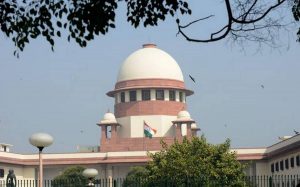Secrecy Of Vote: Highlights Of The Latest Judgement::

The Supreme Court of India held that in any election, be it to Parliament or State legislature, the maintenance of secrecy of voting is “a must”.
- It reiterated its 2013 judgement in the People’s Union for Civil Liberties case.
Highlights of the Latest Judgement:
- Part of Fundamental Right: The secrecy is a part of the fundamental right of freedom of expression.
- The confidentiality of choice strengthened democracy.
- Part of Basic Structure: Democracy and free elections were a part of the Basic Structure of the Constitution.
- The concept of ‘basic structure’ came into existence in the landmark judgment in Kesavananda Bharati vs State of Kerala case (1973).
- On Booth Capturing: Booth capturing and/or bogus voting should be dealt with iron hands, because it ultimately affects the rule of law and democracy.
- Nobody can be permitted to dilute the right to free and fair election.
- On Unlawful Assembly: Once the unlawful assembly is established in prosecution of the common object, each member of the unlawful assembly is guilty of the offence of rioting.
- The use of the force, even though it be the slightest possible character by any one member of the assembly, once established as unlawful constitutes rioting.
- It is not necessary that force or violence must be by all but the liability accrues to all the members of the unlawful assembly.
- The definition of ‘unlawful assembly’, according to Indian law, is laid down in Section 141 of the Indian Penal Code




